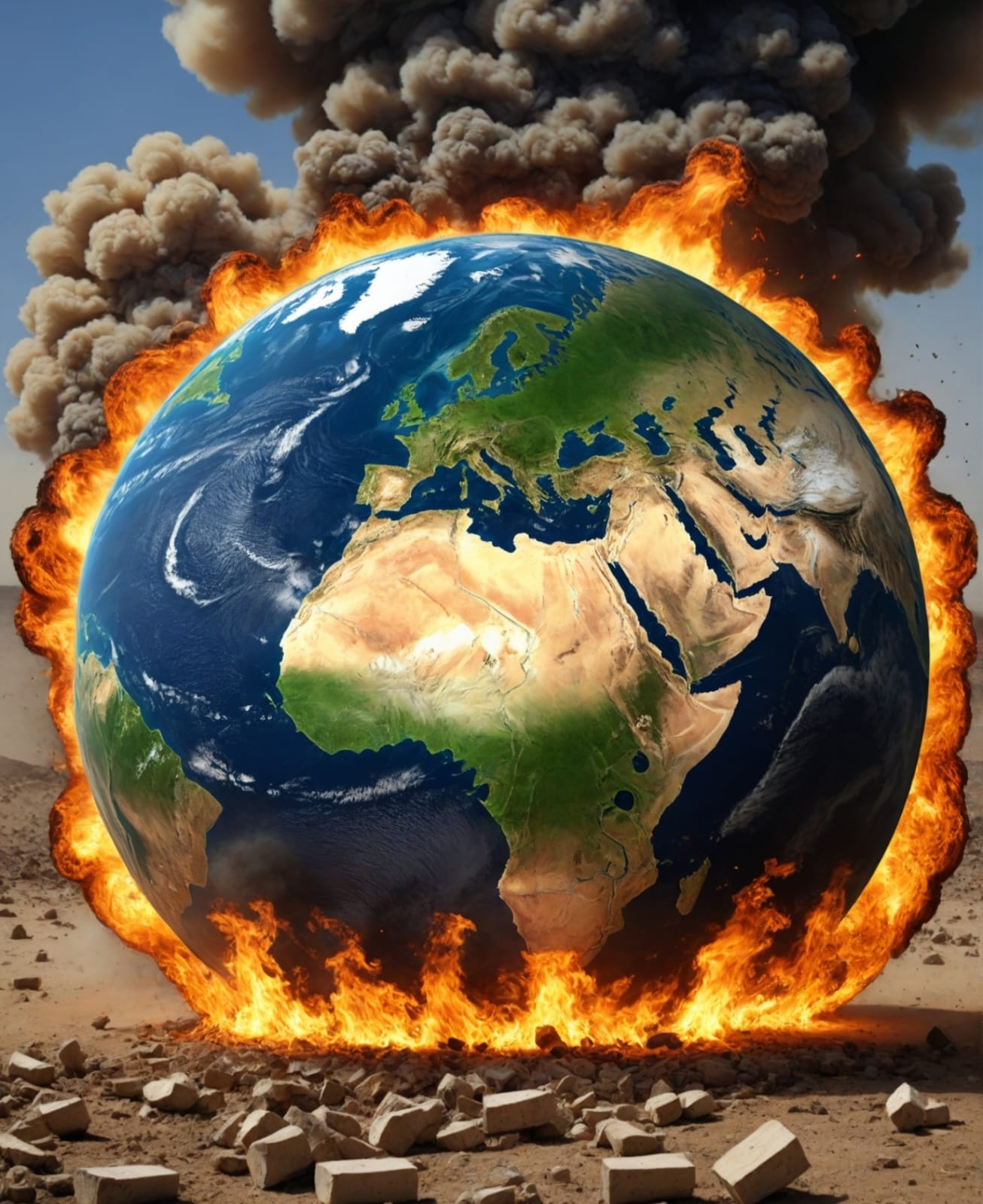The Conflict in Ukraine and the Rising Tensions in Asia
As the world faces many ongoing conflicts and high geopolitical tensions, the specter of a third world war looms on the horizon. From the prolonged war in Ukraine to the escalation of violence between Israel and Palestine, the international landscape is characterized by instability, uncertainty and a growing potential for a widespread conflict. One of the most important points to note on the current world stage is the conflict between Russia and Ukraine. This war, which began with the Russia's invasion of Crimea in 2014 has now escalated dramatically with a large-scale invasion that began in February 2022, has had a profound consequences for global security. This conflict has caused deaths of tens thousands, mass displacement and widespread destruction. The West, led by the United States and NATO, has tried to deter the russians by imposing heavy sanctions on Russia and its citizens abroad, they are also providing significant military and financial aid to Ukraine. This proxy war between nuclear-armed states increases the risk of a larger and more destructive conflict.
The Asia-Pacific region is also another potential hotbed of conflict. China's assertive stance in the South China Sea, its military buildup and aggressive stance towards Taiwan have raised alarm across the region. The United States in reaffirming its commitment to the defense of Taiwan has increased its military presence in the region, resulting in frequent naval clashes and rhetorical escalation. Meanwhile, North Korea's continued missile tests and nuclear ambitions adds another level of instability. The risk of a miscalculation or an inadvertent escalation in this region can have catastrophic consequences.
The Middle East and the crisis in Africa
The Middle East still remains a permanent hotbed of conflict and instability. The long-running Israeli-Palestinian conflict has seen a resurgence of violence, that has resulted now into a full-scale war between the Israel forces and Palestinian militants in Gaza. Over the recent years Israel's normalization of relations with several Arab states has only changed regional dynamics, but failed to resolved the underlying tensions with Palestine. The ongoing conflict in Gaza, marked by intense missile attacks and airstrikes, highlights the deep hostility and the risk of further escalation in the region. In addition, Iran's nuclear program and its support for proxy groups throughout the region continue to provoke clashes with Israel and Saudi Arabia. Recent clashes between Israel and Hezbollah along the Lebanese border also illustrate the fragility of peace in this volatile region.
Africa has also experienced an increase in conflicts that could also contribute to a larger global confrontation. In Ethiopia, the civil war in the Tigray region has caused tremendous human suffering and regional instability. In West Africa, jihadist groups linked to ISIS and al-Qaeda have stepped up their attacks, destabilizing countries such as Mali, Burkina Faso and Nigeria. These conflicts not only have devastating local impacts, but also create the conditions for international interventions and rivalries, attracting external powers and complicating the global security landscape.
Economic and Cyber Warfare and the Role of International Institutions
Beyond traditional military conflicts, the modern era is also witnessing the rise of economic and cyber warfare. Sanctions, trade wars and cyber-attacks are becoming common tools of statecraft, adding new dimensions to the global rivalry. The US-China trade war, cyber-attacks allegedly originating from state actors and the weaponization of energy supplies by countries like Russia are all part of this new strategic landscape. These non-kinetic forms of conflict have the potential to disrupt global stability, undermine economies and exacerbate the already existing tensions. Amidst these growing tensions, the role of international institutions like the United Nations and the European Union is crucial yet increasingly challenged. The UN's ability to mediate and enforce peace is often hampered by the veto power of its permanent Security Council members, leading to deadlock and inaction in critical situations. Similarly, the EU's and AU's collective response to external threats is frequently undermined by internal divisions and varying national interests. These limitations weakens the global community's capacity to address conflicts effectively and prevent their escalation.
